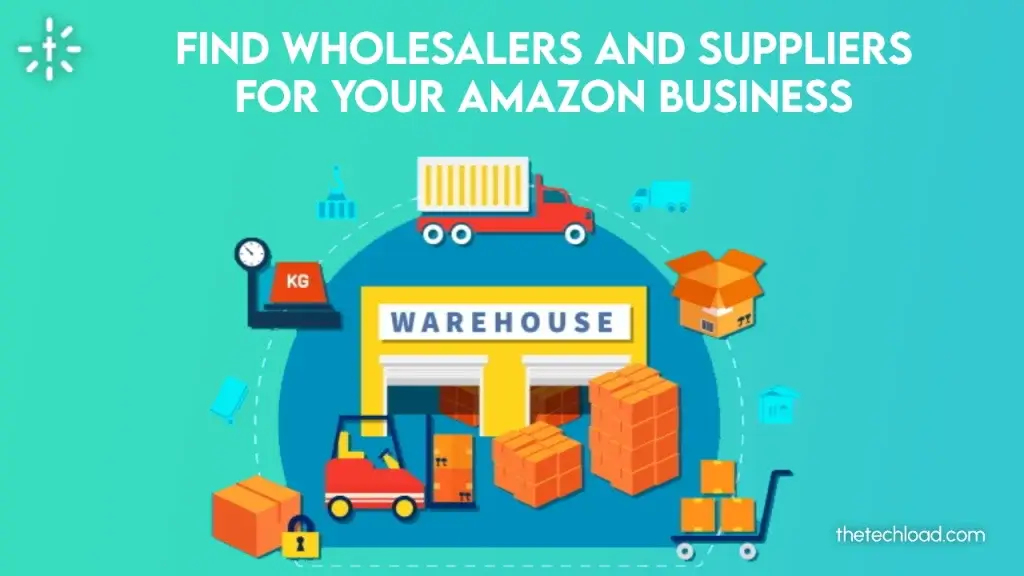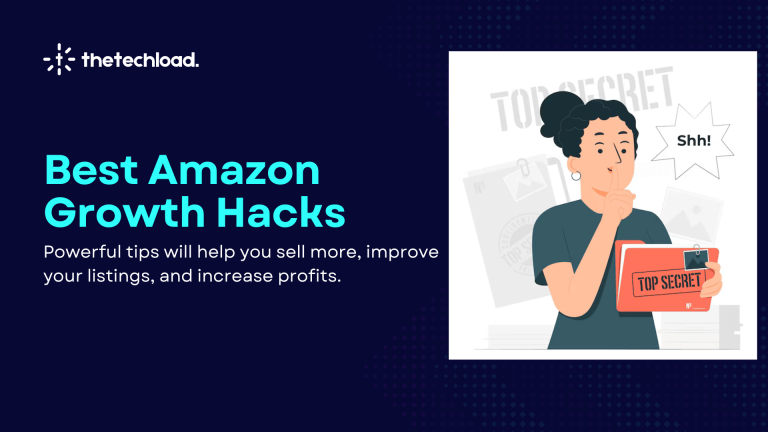Finding reliable wholesalers and suppliers is a major challenge for many Amazon sellers. The success of your business depends on the quality, consistency, and reliability of your suppliers. Without trustworthy suppliers, you risk stock shortages, poor product quality, and missed delivery deadlines. It’s crucial to find wholesalers and suppliers for your Amazon business that you can depend on.
Fortunately, there are several effective strategies to help you find the right partners. From online directories and trade shows to supplier reviews and negotiation tips, you have plenty of tools to guide you. These resources can help you secure quality products, maintain steady inventory, and ensure smooth operations.
To learn more about how to find suppliers for your Amazon business, keep reading our complete guide. We will walk you through the process with valuable insights and practical tips to help you succeed.
How to Find Wholesalers and Suppliers for Your Amazon Business

Finding suppliers for ecommerce business is essential for ensuring a steady flow of quality products. Follow these steps to locate and establish relationships with reliable partners.
18 Ways to Find Wholesalers and Suppliers for Your Amazon Business
Here are 18 effective ways to find reliable wholesalers and suppliers for your Amazon business:
- Alibaba
- Industry Publications
- Trade Shows
- 1688.com
- Amazon Business
- Amazon Sustainable Program
- Industry Associations
- Global Market
- Wholesale Directories
- Online B2B Wholesale Directories
- DHgate
- Search Engines
- Facebook Groups
- Direct Referrals
- Research your Competitor’s suppliers
- Directly on Packaging
- DX.com
1. Alibaba
Alibaba is a leading global B2B marketplace that connects you with millions of product listings. This platform is ideal for researching products and identifying wholesalers and suppliers for your Amazon business. It offers detailed information on minimum order quantities and product quality, making it easier to find reputable suppliers.
2. Industry Publications
Industry publications can be a valuable resource for discovering high-quality wholesalers and suppliers. Subscribe to niche-specific magazines, blogs, and newsletters to stay updated on the latest trends and get recommendations for reputable suppliers.
3. Trade Shows
Attending trade shows allows you to meet suppliers face-to-face, sample products, and establish direct relationships. This direct interaction can lead to better wholesale pricing and insights into suppliers’ capabilities.
4. 1688.com
1688.com is a popular platform for finding affordable and high-quality products from Chinese suppliers. This site offers competitive prices and no minimum order requirements, making it a great option for evaluating potential wholesalers before committing to larger orders.
5. Amazon Business
Amazon Business connects you with corporate sellers and wholesalers, providing an easy way to find suppliers for your Amazon business. It allows you to purchase products in bulk, which can be resold through Amazon FBA or FBM.
6. Amazon Sustainable Program
For a sustainable approach to sourcing wholesalers for your Amazon business, check out Amazon’s Sustainable Program. This initiative helps you find suppliers committed to environmentally friendly practices, which can appeal to the growing market of eco-conscious consumers.
7. Industry Associations
Joining industry associations can give you access to exclusive wholesale suppliers and valuable networking opportunities. These associations often provide directories and resources to help you find credible suppliers.
8. Global Market
The Global Market platform connects international buyers with high-quality Chinese manufacturers. It offers a range of products and ensures that suppliers meet rigorous quality and environmental standards.
9. Wholesale Directories
Use wholesale directories such as Salehoo and Worldwide Brands to explore a variety of suppliers and products. These platforms provide detailed listings and help you identify reliable wholesale suppliers for online business
10. Online B2B Wholesale Websites
Domestic and international B2B websites like Bargains Group, Shopwholesale, and Faire can be excellent resources for finding wholesalers and suppliers for your Amazon business. These platforms offer competitive prices and convenient shipping options.
11. DHgate
DHgate is a marketplace known for its competitive wholesale prices and extensive range of products. The platform’s tiered pricing system and frequent promotions make it a good option for sourcing products for your Amazon business.
12. Search Engines
Utilize advanced search features on search engines to find specific suppliers. Use techniques like quotation marks and the minus symbol to refine your search and locate potential wholesalers and suppliers for your Amazon business.
13. LinkedIn
LinkedIn’s professional network can help you identify key decision-makers and potential suppliers. Building a presence on the platform can facilitate connections and expedite the process of finding reliable wholesalers.
14. Facebook Groups
Join Facebook groups focused on Amazon selling and e-commerce. These communities often share valuable insights and supplier recommendations, helping you find wholesalers and suppliers for your Amazon business.
15. Direct Referrals
Leverage your network by asking for referrals from other sellers and industry contacts. Personal recommendations can lead you to trustworthy suppliers who have been vetted by others in the industry.
16. Research Your Competitor’s Suppliers
Investigate the suppliers used by your competitors. Analyzing their product listings and sourcing methods can provide insights into high-quality suppliers and potential opportunities for your own business.
17. Directly on Packaging
Check product packaging for supplier information. Manufacturer names and contact details are often listed on packaging, which can help you trace back to potential wholesalers and suppliers for your Amazon business.
18. DX.COM
DX.COM specializes in electronics and appliances, offering a range of high-quality products from reputable brands. Their wholesale plan and drop-shipping options make it a convenient choice for sourcing products for your Amazon business.
Establish Communication
When reaching out to potential supplier search for amazon sellers effective communication is key. Start by preparing a well-crafted inquiry that includes specific details about your needs, such as the types of products you’re interested in, desired quantities, and any special requirements. This will help suppliers understand your needs and provide accurate information.
Once you initiate contact, focus on clear and professional communication. Be concise and direct in your emails or calls, and make sure to ask relevant questions about their products, pricing, and terms.
During negotiations, discuss terms like pricing, minimum order quantities, and delivery schedules to ensure that both parties have a clear understanding. Building a positive relationship is crucial, so maintain open lines of communication and follow up regularly to stay updated on your orders and any potential issues.
Understanding Terms and Conditions
When dealing with suppliers, it’s essential to thoroughly understand the terms and conditions of your agreement. Key aspects to consider include:
- Minimum Order Quantities (MOQs): Determine the minimum quantity required for each order and ensure it aligns with your business needs and budget.
- Payment Terms: Clarify payment arrangements, including payment methods, schedules, and any potential discounts for early payment.
- Delivery Schedules: Discuss delivery timelines and shipping methods to ensure that products arrive on time and meet your inventory needs.
- Returns and Refunds: Understand the supplier’s policies on returns, refunds, and exchanges in case of defective or unsatisfactory products.
Clear agreement on these terms will help avoid misunderstandings and ensure a smooth sourcing process.
Networking and Referrals
Networking and obtaining referrals are powerful tools for finding trustworthy wholesalers and suppliers for your Amazon business. Join industry groups, attend networking events, and participate in online forums related to e-commerce and Amazon selling. These interactions can lead to valuable connections and recommendations.
Leverage your existing network by asking fellow business owners or industry contacts for supplier referrals. Trusted recommendations from people you know can lead to finding reliable suppliers who have been vetted by others in the industry.
Building relationships within your industry not only helps in sourcing quality products but also opens doors to new business opportunities and insights.
Conclusion
In conclusion, securing reliable wholesalers and suppliers for your Amazon business is essential for maintaining a consistent supply of high-quality products and ensuring smooth operations.
By utilizing reputable platforms like Alibaba and 1688.com, along with thorough vetting and clear communication, you can establish long-term, trustworthy partnerships. Additionally, comparing prices, verifying certifications, and understanding terms and conditions will help you make informed decisions.
Ultimately, for more insights and tips on wholesale sourcing strategies for Amazon, visit our website, TheTechLoad. We provide comprehensive guides and resources to help you succeed in your ecommerce journey.
FAQs
Use online directories, attend trade shows, and network with industry professionals.
Check their reviews, request samples, and verify their business credentials.
A sourcing agent can help find reliable suppliers and negotiate better prices.
Attend trade shows relevant to your niche to meet wholesalers and view their products.
Alibaba connects you with global suppliers and provides various product options.





